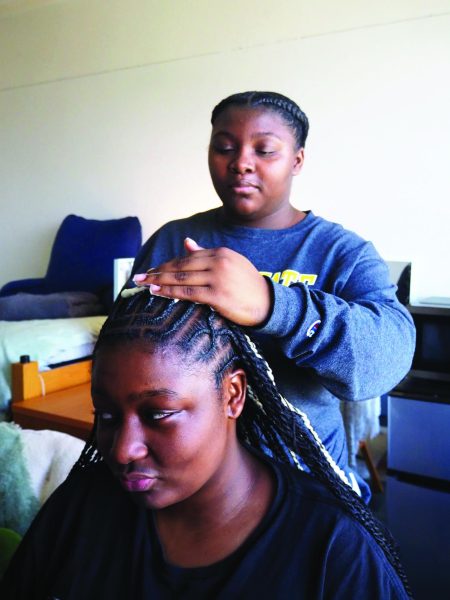Animals in service
September 6, 2017
The number of emotional support animals (ESA) on campus has increased within the past two years.
In 2015, the Nebraska State College System changed its policy to allow ESAs in college housing. An ESA is an animal whose sole purpose is to provide emotional support, companionship and therapeutic benefits for its owner.
“It’s a good change they made to the policy to allow that,” said Lin Brummels, director of Counseling at Wayne State College. “It’s whatever we can do to try to help students proceed onto their education.”
Students qualify for these accommodations if they have a health care professional who diagnoses a need for and “prescribes” the ESA.
“We are seeing an increase. The law is relatively new, and the intervention is still one that is being addressed by healthcare providers,” said David McMahan, assistant dean of students and Title IX and compliance coordinator. “Is this the best way for addressing things, or not? Some students are taking advantage of this, that may not have historically.”
WSC is using this as an opportunity to give its students the best education possible, one that suits their lifestyle.
“I think it’s absolutely important. I think it’s essential that we provide support for those who need an accommodation,” McMahan said. “So for those individuals who it has been determined that this is their way of being able to have access to an education, then absolutely.”
The animals must be trained and pose no threats to the property and students in their surroundings.
“One of the things we take a look at is how the animals can impact others in their community.” Said McMahan. “Our students and its community members are very supportive in making sure everyone’s needs are met, but it does create some unique situations that must be addressed.”
The college emphasizes the importance of providing students with the chance to successfully complete their time at WSC.
“I think that’s our role—to remove any barriers a student might have while pursuing their education.” McMahan said.








